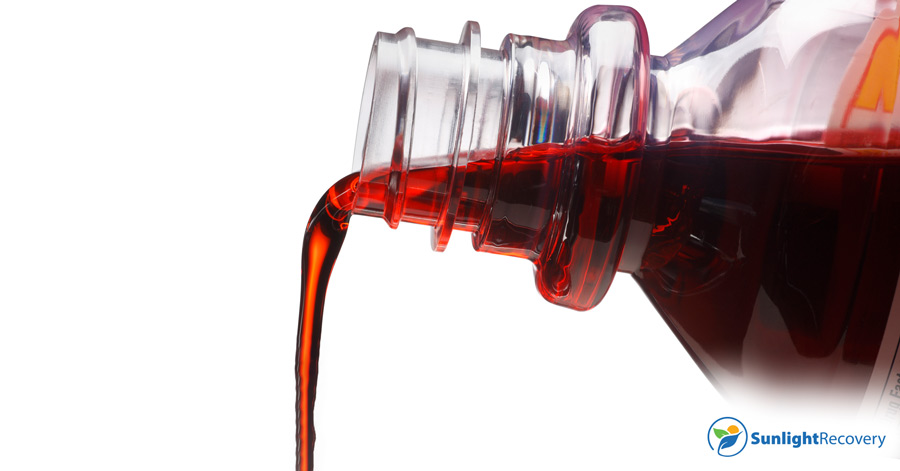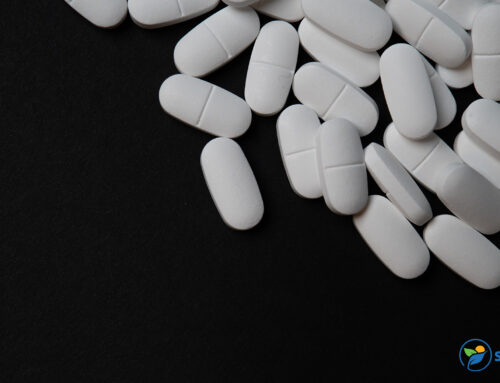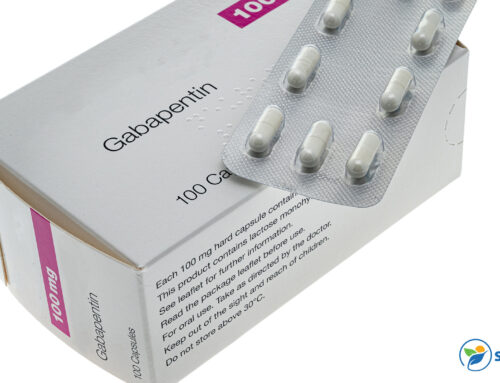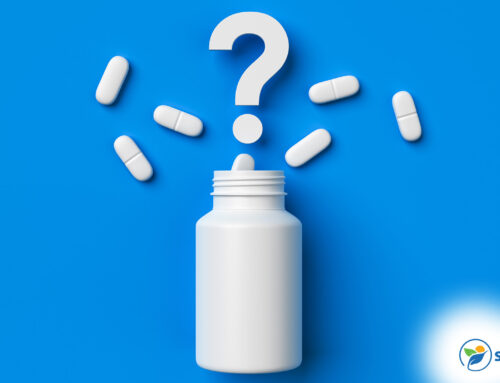Dextromethorphan, or DXM, is a common ingredient in over-the-counter cough syrups. While DXM can be a helpful remedy when you’re sick, some people abuse it for its psychoactive effects. This guide explains the signs and symptoms of DXM addiction and describes how to help someone you know during recovery.
Signs and Symptoms of DXM Addiction and Abuse
Spotting the signs of DXM addiction in a loved one can be challenging because it’s available over the counter in cough-suppressant medications. However, some people purchase illegal powders or tablets, which may contain DXM or a mixture of DXM and other drugs.
When taken correctly to treat a cough, DXM is a relatively safe medication that rarely causes side effects. However, it creates significant psychoactive effects when taken in larger doses. The symptoms of DXM abuse can be similar to the effects of alcohol intoxication or drugs such as marijuana and ecstasy. They often include:
- Confusion
- Agitation
- Paranoia
- Sensory changes
- Floating sensations
- Hallucinations
- Laughter
- Euphoria
You may suspect DXM abuse in a loved one if they appear intoxicated but don’t show signs of having consumed alcohol, such as the smell of alcohol on their breath. They may purchase medications containing DXM frequently or finish bottles much faster than you’d usually expect. You may also notice the person taking DXM medication without cough or cold symptoms.
People of all ages and from all walks of life can develop a DXM addiction, but it’s more common in teenagers and young adults. This could be due to the relative affordability and availability of DXM medications.
Unfortunately, unscrupulous websites may publish information detailing how to abuse DXM. Therefore, parents may notice searches such as “can you abuse DXM” or similar terms on their teen’s internet search history. Furthermore, people who abuse DXM often use slang terms to describe their substance use, and knowing alternative words for the drug can help you detect abuse. Common terms for taking DXM include “indexing,” “robodosing” and “skittling.”
Dangers and Risks of DXM Abuse
The risk of experiencing DXM poisoning increases with higher doses. DXM overdoses can cause psychosis, slow breathing, increased heart rate and high blood pressure. Severe DXM poisoning can lead to seizures, coma and even death, so it’s essential to seek medical help if someone you know shows signs of taking a high dose of DXM. Fortunately, most overdoses can be successfully treated in an emergency room.
DXM cough syrups often contain acetaminophen and antihistamines that could cause significant health problems when taken too frequently or in high doses. For example, taking too much acetaminophen can lead to severe liver damage over time.
Another significant risk of DXM abuse is accidents. Taking large amounts of DXM can lead to sensory impairment, making it harder for the person to stay safe and make sensible decisions. For instance, your loved one could be at a higher risk of being involved in a traffic accident while under the influence of DXM.
How to Support Someone Struggling With DXM Addiction
Supporting someone with a DXM addiction can be challenging for friends and family members, and it can be hard to know how to broach the topic of substance abuse. However, evidence shows that social support encourages people to engage in treatment and reduces the risk of relapsing during recovery.
Recovery from DXM addiction is a deeply personal journey, and what works for one person may not work for another. Consider asking your loved one what support they need. With their permission, familiarizing yourself with their treatment plan can also help you determine how best to assist them. Their treatment plan will include goals to help them achieve better physical, emotional and social well-being.
Witnessing someone you care for dealing with addiction is often frustrating, but it’s important to avoid shaming or blaming the person for their condition. Substance abuse disorders such as DXM addiction are diseases that can affect anyone. Demonstrating compassion and empathy toward your loved one can help reduce feelings of isolation and provide the supportive social environment they need to heal.
Relapses are common during addiction recovery and don’t mean that overcoming the addiction is hopeless. Often, relapses indicate that the person needs a different treatment or changes to their existing treatment plan. Encouraging your loved one to continue engaging in treatment after a relapse can help them overcome feelings of shame and regain their motivation.
It’s important to prioritize your own well-being when supporting someone through DXM addiction recovery. You may find it helpful to join an online support group for friends and family members of people who abuse DXM and other substances. Ensuring you eat well, getting enough rest and taking time out to enjoy your usual activities can also help you manage feelings of stress or anxiety.
Professional Help and Treatment Options for DXM Addiction
While social support is important for overcoming DXM addiction, your loved one will also need professional help. There are currently no approved medications to treat DXM addiction. However, certain behavioral therapies can address the root causes of your loved one’s DXM abuse, help them stop using the drug and reduce the risk of relapses. These therapies can also help people make positive changes to improve their physical and mental well-being and achieve life-enhancing goals, such as completing education or gaining employment.
Education to Prevent and Address DXM Abuse
Educating yourself about DXM abuse and addiction is one of the most powerful things you can do to support your loved one’s recovery. Understanding the effects of DXM abuse and the challenges people with DXM addictions face can make it easier to spot the signs of a problem in someone you love and help them during treatment. Furthermore, educating your teens and young adults on the risks of DXM can help discourage them from abusing the medication.
At Sunlight Recovery, our Family Outreach Program can help you create the supportive environment necessary for a healthy recovery. Our expert team can teach you strategies to promote healthier relationships and educate you about addiction and treatment options.
Get Help Today
Sunlight Recovery offers tailored treatment programs to help your loved one recover from DXM addiction. Contact us to discuss therapy options and learn more about our clinicians and facilities.






